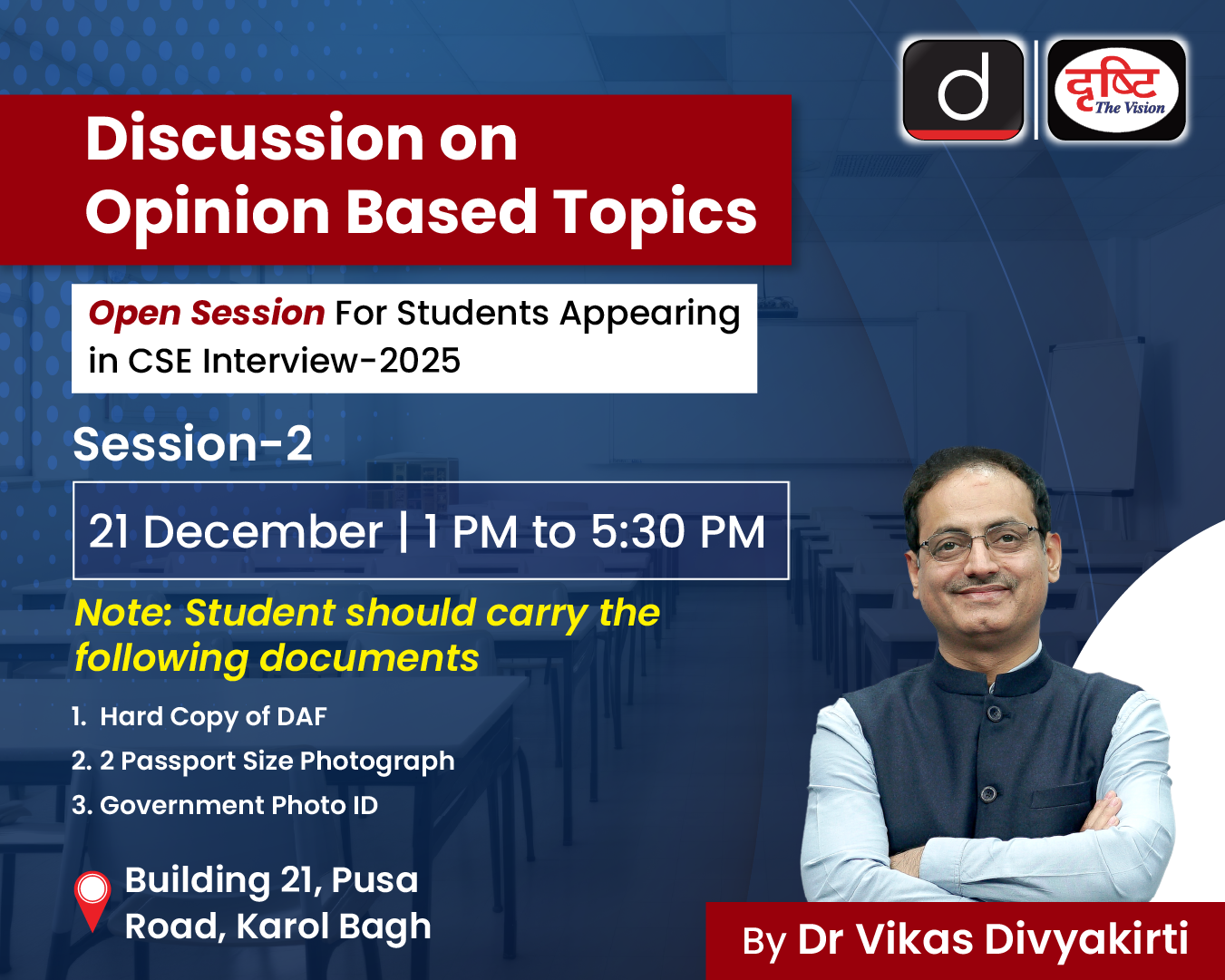-
15 Aug 2023
GS Paper 3
Bio-diversity & Environment
Day 26: What is geoengineering and what are its potential benefits and risks for mitigating climate change? (150 words)
- Start by introducing the concept of geoengineering and its purpose in addressing climate change.
- Discuss the potential benefits, risks and challenges associated with geoengineering.
- Conclude by reiterating the need for caution and responsible management in considering geoengineering.
Answer:
Geoengineering refers to deliberate and large-scale interventions in the Earth's climate system with the aim of mitigating the effects of climate change. It encompasses a range of techniques designed to either remove greenhouse gases from the atmosphere or alter the Earth's radiation balance to counteract global warming. Geoengineering approaches can be broadly categorized into two main types: solar radiation management (SRM) and carbon dioxide removal (CDR).
- Solar Radiation Management (SRM): This category of geoengineering techniques aims to reflect a portion of the sun's energy away from the Earth's surface, thereby reducing the amount of heat trapped in the atmosphere.
- Carbon Dioxide Removal (CDR): CDR techniques aim to remove carbon dioxide from the atmosphere and store it in various forms. Some CDR methods include:
- Afforestation and Reforestation: Planting trees and restoring forests to absorb carbon dioxide through photosynthesis.
- Bioenergy with Carbon Capture and Storage (BECCS): This involves growing crops for bioenergy, converting the biomass into energy, and capturing the carbon dioxide emissions for storage underground.
- Direct Air Capture: Using technologies to capture carbon dioxide directly from the ambient air and store it in geological formations.
Potential Benefits of Geoengineering for Mitigating Climate Change:
- Rapid Response: Geoengineering could provide a relatively rapid response to the urgent need to limit global temperature rise, especially in scenarios where conventional emissions reduction efforts fall short.
- Climate Stabilization: SRM techniques could help temporarily stabilize the climate by reducing temperatures and mitigating the effects of extreme weather events.
- Flexibility: Geoengineering offers the flexibility to address regional climate impacts and could potentially be tailored to specific areas or circumstances.
Risks and Challenges of Geoengineering:
- Unintended Consequences: Geoengineering interventions may have unintended ecological, environmental, and social consequences that are difficult to predict and manage.
- Moral Hazard: Relying on geoengineering as a sole solution might discourage necessary emissions reductions, leading to a moral hazard where societies delay necessary actions to reduce greenhouse gas emissions.
- Ethical Concerns: The deployment of geoengineering technologies raises ethical questions about who has the authority to make decisions about the Earth's climate, potential conflicts of interest, and democratic control over such interventions.
- Global Governance and Diplomacy: Geoengineering actions could lead to geopolitical tensions, as different countries may have varying opinions on their deployment and impacts.
- Complexity and Uncertainty: The Earth's climate system is incredibly complex, and the potential outcomes of geoengineering interventions are uncertain. Modifying one aspect of the system may lead to unintended consequences in other parts.
While geoengineering holds potential benefits for mitigating climate change in the face of urgent challenges, its risks and uncertainties highlight the importance of careful research, international cooperation, and thorough consideration of ethical and governance issues before any large-scale deployment is attempted. It should not be viewed as a replacement for sustained efforts to reduce greenhouse gas emissions through conventional means.





